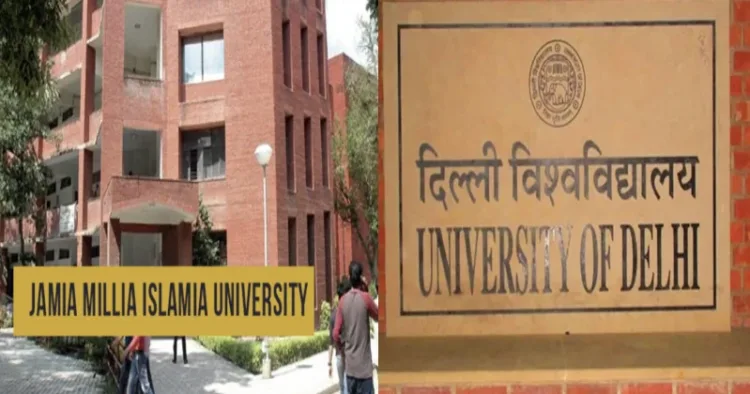Delhi University’s (DU) Cluster Innovation Centre (CIC) is considering a contentious proposal to eliminate Muslim reservations in admissions for the Master of Science (MSc) in Mathematics Education programme, jointly conducted with Jamia Millia Islamia (JMI). This move, if implemented, could fundamentally alter the seat allocation framework that has been in place since the programme’s inception in 2013.
The MSc programme, launched under the Meta University concept, symbolises collaboration between DU and JMI. Admissions to this programme are conducted through the Common University Entrance Test for Postgraduate Programmes (CUET-PG), with a current seat distribution model that reserves specific slots for Muslim candidates.
Of the 30 available seats, 12 are allocated to the unreserved category, six to Other Backward Classes (OBC, non-creamy layer), four to Muslim general category candidates, three to Economically Weaker Sections (EWS), two to Scheduled Castes (SC), and one each to Scheduled Tribes (ST), Muslim OBCs, and Muslim women.
The CIC’s governing body is scheduled to deliberate on this issue during a meeting on Monday, December 30. An official from CIC explained that the proposal stems from the principle that no university course should reserve seats based on religion. “It is a different case when it comes to having a quota for the underprivileged as part of caste reservation,” the official added.
The official also noted that while the programme is jointly administered by DU and JMI, admissions have been handled exclusively by DU in recent years. Consequently, DU’s reservation policies are being considered for application to the entire course.
“This is under discussion. Once the governing body makes a decision, we will submit the proposal to the Vice-Chancellor for approval,” the official said.
The MSc Mathematics Education programme was designed to leverage the strengths of both universities under the Meta University concept, which aims to combine resources and expertise from different institutions. According to the official, the course is unique in India, awarding degrees that bear the logos of two central universities.
At the programme’s inception, it was agreed that 50 per cent of the students would be admitted through DU and the other 50 per cent through JMI. However, specifics about the distribution of reserved seats were decided later by a committee managing the programme’s logistics.



















Comments